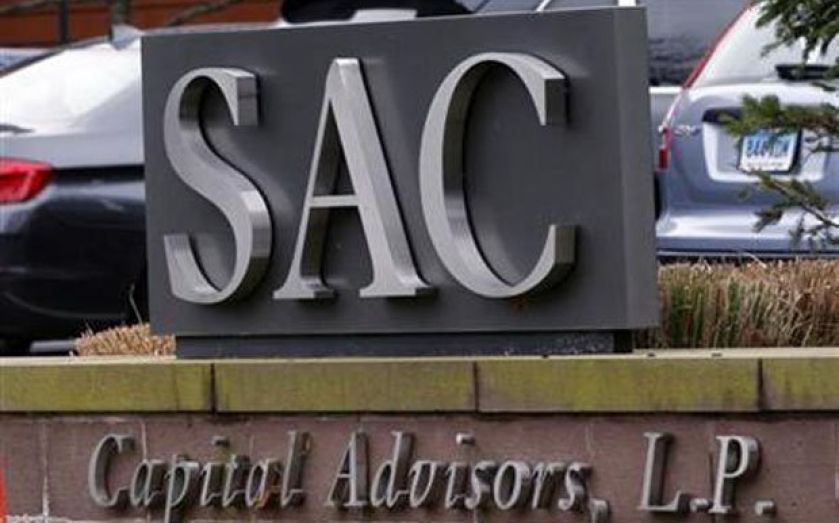Fed goes after Wall St giant

US FEDERAL prosecutors yesterday criminally indicted a top Wall Street hedge fund over allegations that years of spectacular performance were partly based on insider trading.
SAC Capital Advisors was charged by a court in New York on four counts of securities fraud and one count of wire fraud following a seven-year investigation by regulators.
No finance giant, guilty or not, has lived through such an indictment. In 2002, the Department of Justice’s decision to charge accountancy firm Arthur Andersen drove it to collapse. The firm’s conviction was reversed on appeal in 2005.
Prosecutors allege SAC Capital used inside information on publicly traded companies to deliver a decade of impressive returns for investors.
“SAC became … a veritable magnet for market cheaters,” said US attorney Preet Bharara, who has led a crackdown on insider trading.
Federal Bureau of Investigation assistant director George Venizelos added: “To be blunt, SAC – through the actions and inactions of its management – not only tolerated cheating, it encouraged it.”
But the firm denied the charges last night: “SAC has never encouraged, promoted or tolerated insider trading and takes its compliance and management obligations seriously.”
The $15bn (£9.8bn) fund, founded by industry legend Steve Cohen in 1992, is one of the world’s best performing hedge funds. It has offices in the City near St Paul’s, and has recruited at least six new London-based members of staff this year.
Its reputation soured after the financial crash and in 2011 two SAC employees pleaded guilty to insider trading charges. A top SAC executive, Michael Steinberg, was also charged with insider trading earlier this year. He has pleaded not guilty and faces trial in November.
Cohen received civil charges last week over his alleged failure to supervise Steinberg but has not been charged with criminal wrongdoing.
Prosecutors allege the fund hired analysts and fund managers who had a network of contacts likely to provide insider information.
It said fund managers were financially incentivised to provide Cohen with investment ideas where they had an “edge” over investors.
Evidence presented yesterday alleges one manager emailed Cohen: “I am very comfortable that this qtr [quarter] is going to be solid vs current consensus and guidance. I am getting coffee with the guy on tues [Tuesday] afternoon.”
Yesterday’s criminal charges cap months of speculation about the fate of the fund after investors – including private equity giant Blackstone – pulled millions from the fund earlier this year.
PROFILE: SAC’S BOSS STEVE COHEN
Once labelled as secretive as Howard Hughes, Steven A. Cohen, “Stevie” to his associates, took just two decades to build SAC Capital Advisors into one of Wall Street’s biggest players. Converting an early love of baseball scores into financial interest, Cohen first traded stocks while still at school. After graduating from the University of Pennsylvania’s Wharton School with an economics degree, he joined Wall Street firm Gruntal & Co in 1978 and started making big profits. He left to set up SAC – an acronym for his name –in 1992 with $20m of his own money. The firm steadily gained a reputation as a highly calibrated trading machine, with about 120 fund managers executing long/short equity strategies across different portfolios. On any given day, SAC represented about three per cent of the entire daily volume on the New York Stock Exchange. At the heart of SAC was Cohen’s own personal fund, Sigma – worth around $8bn – which he traded on a daily basis. Since 1996 the firm’s flagship fund SAC Capital Management returned 27.1 per cent a year versus 5.7 per cent by traditional US blue chip equities. Pressure to perform meant Cohen instilled a tough system dedicated to getting results. “At SAC, you either perform or you’re dead,” one trader once said.